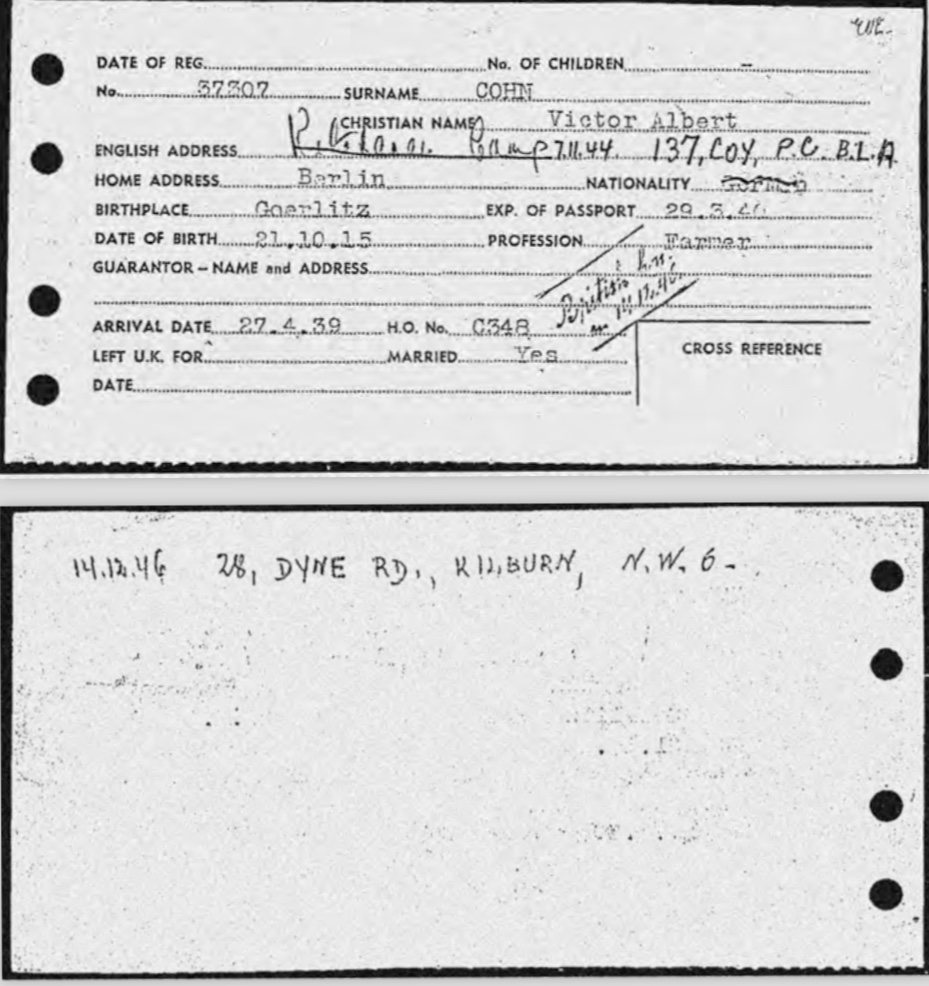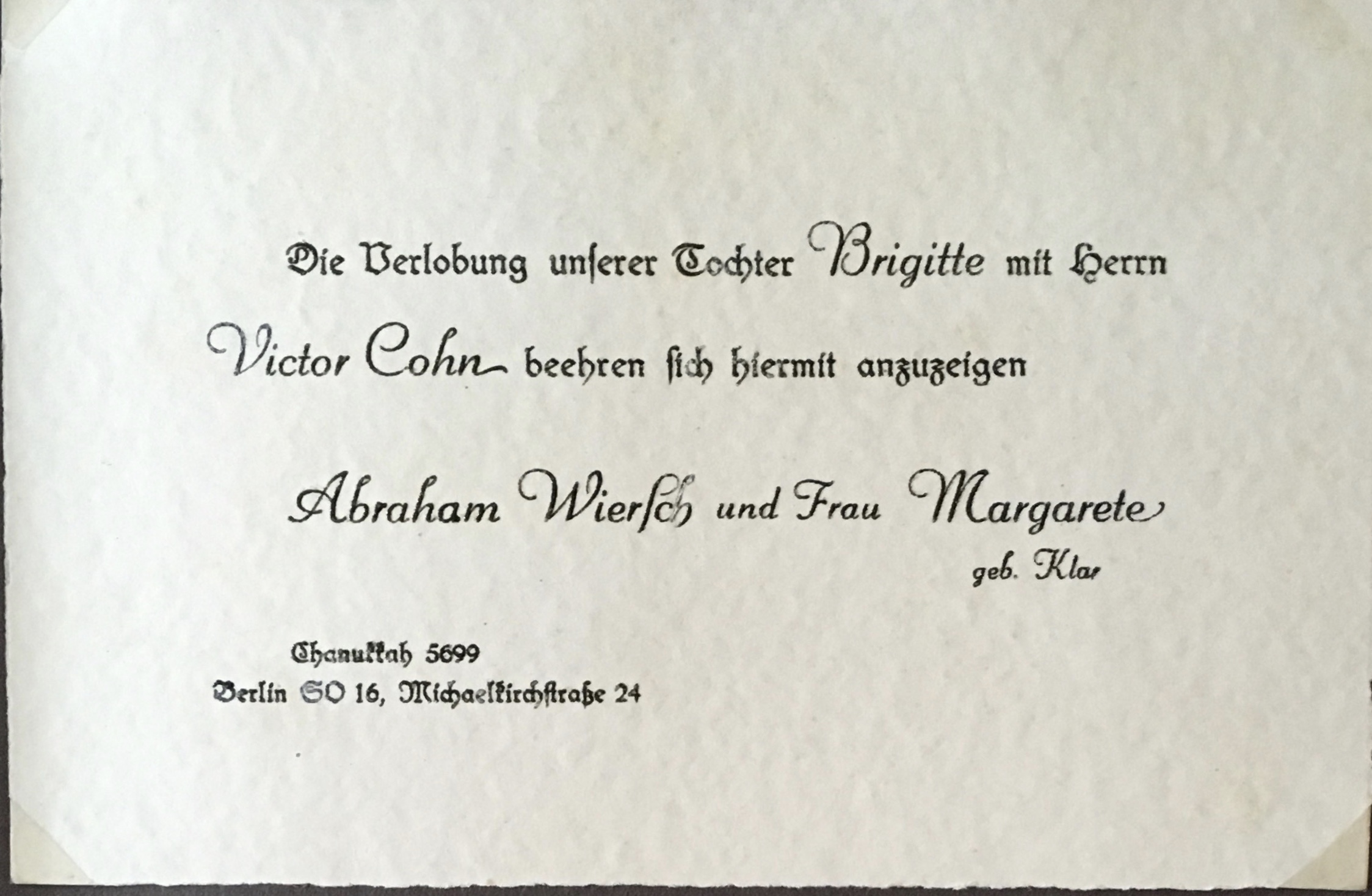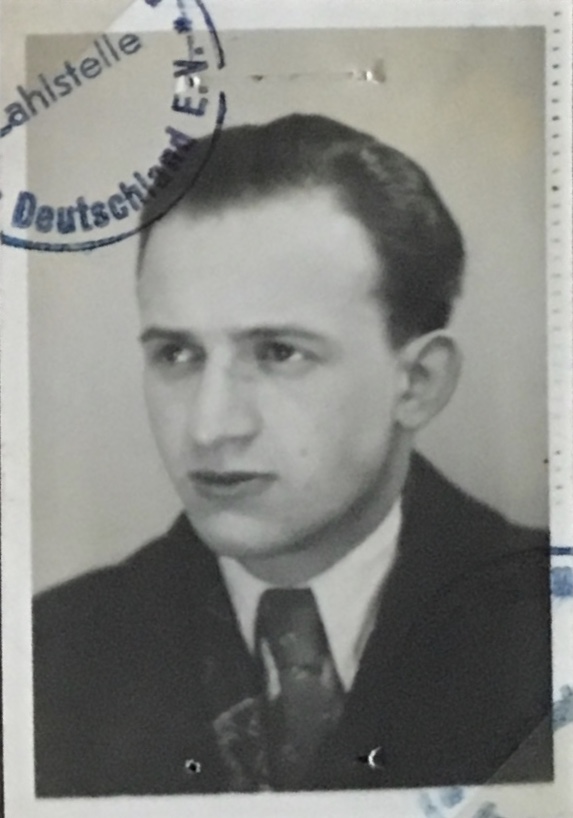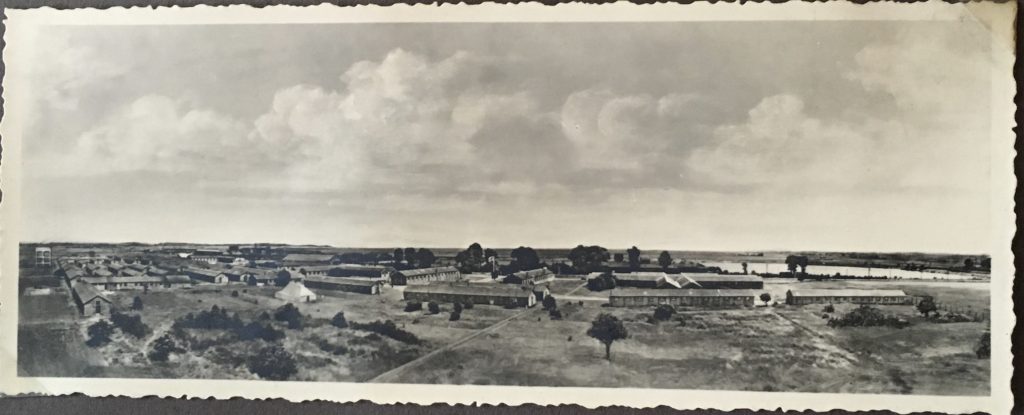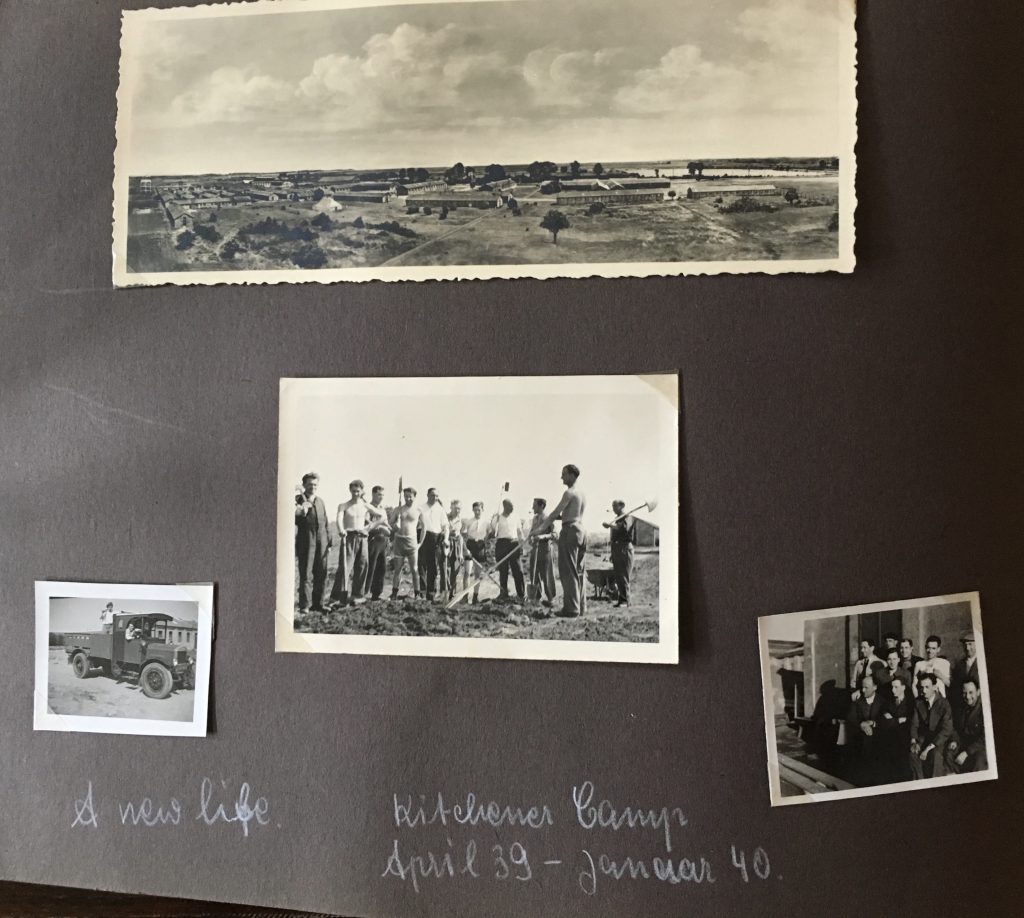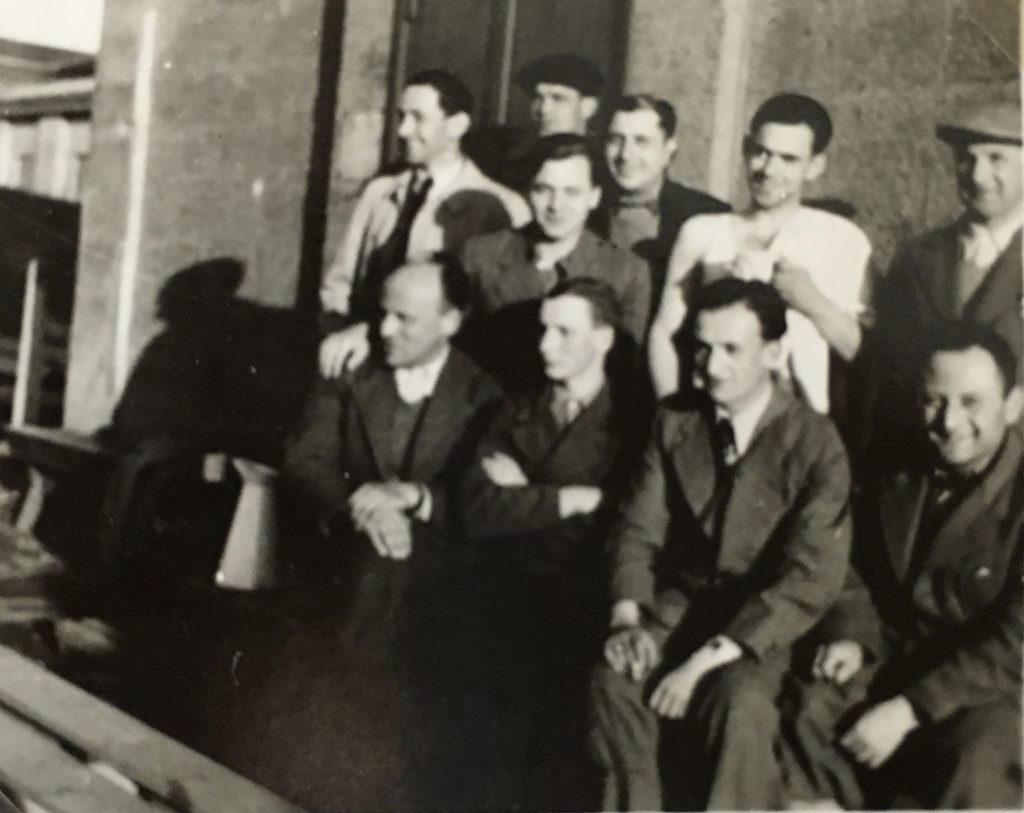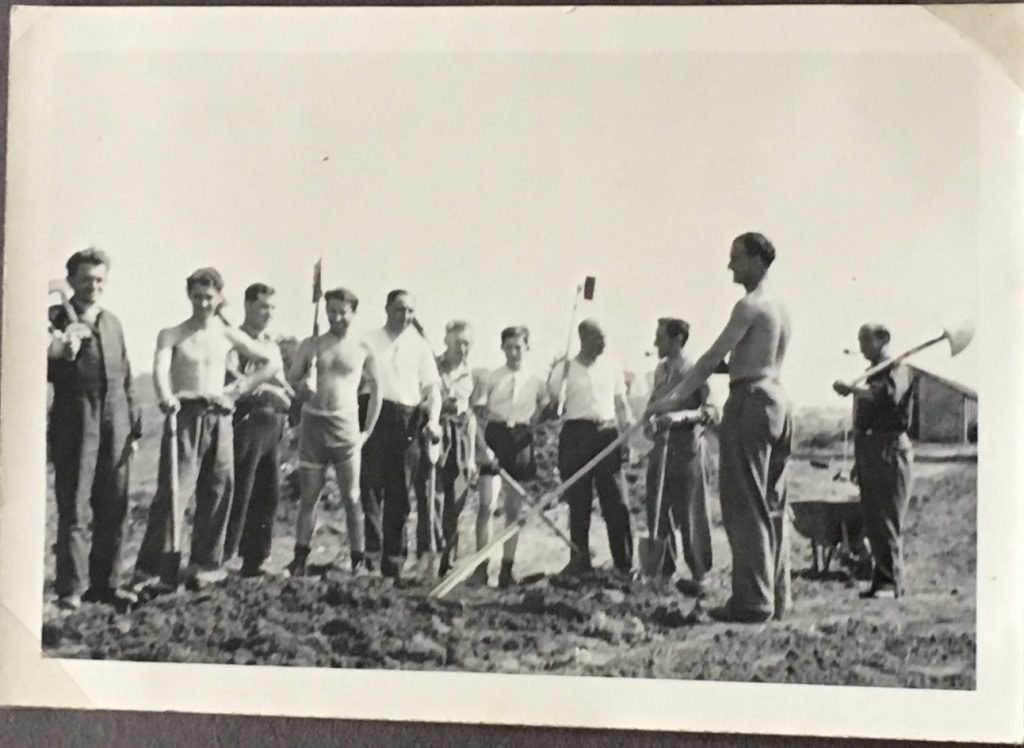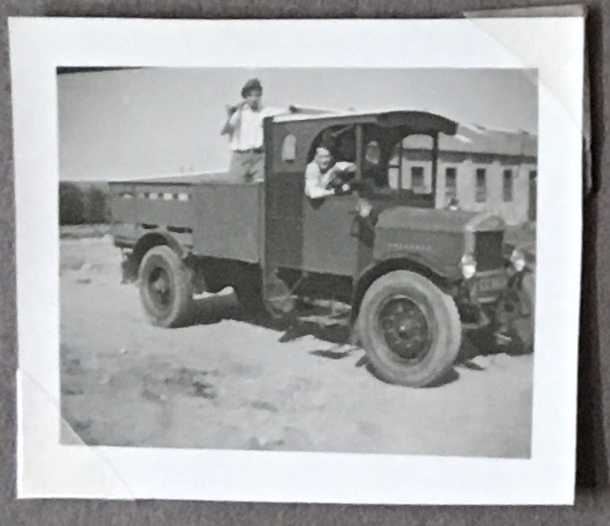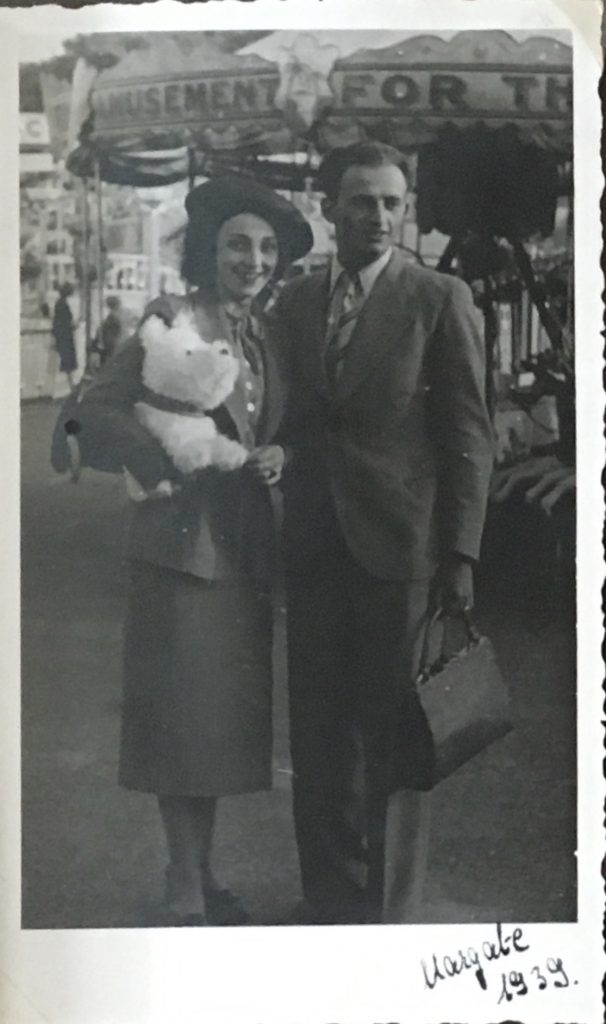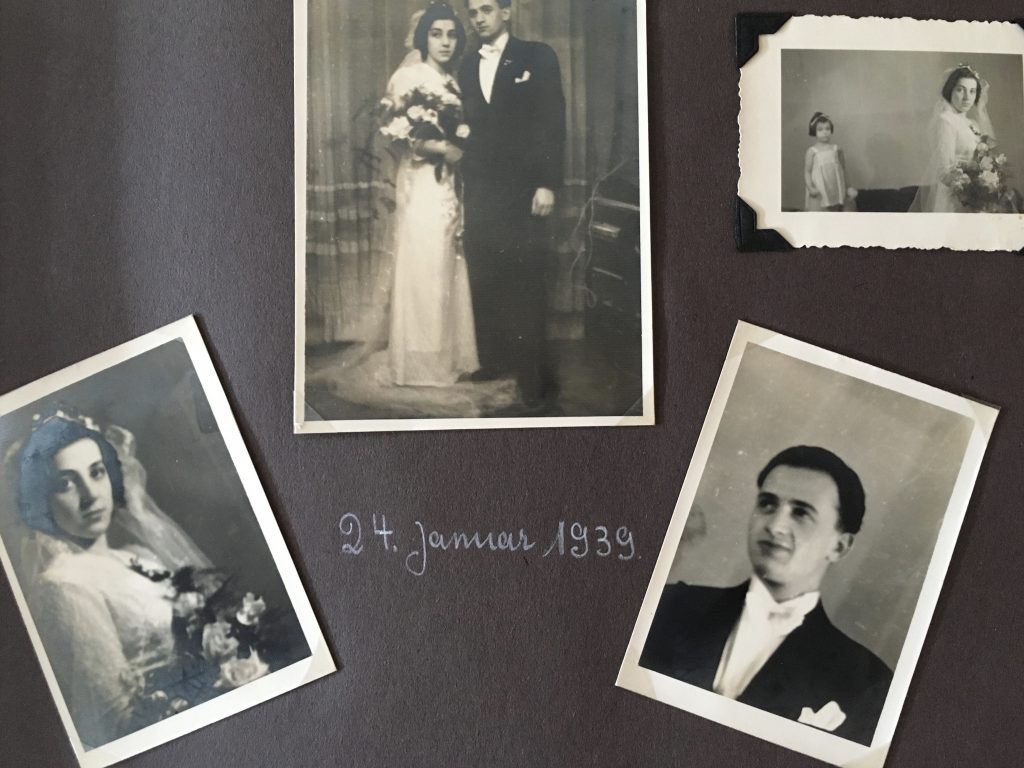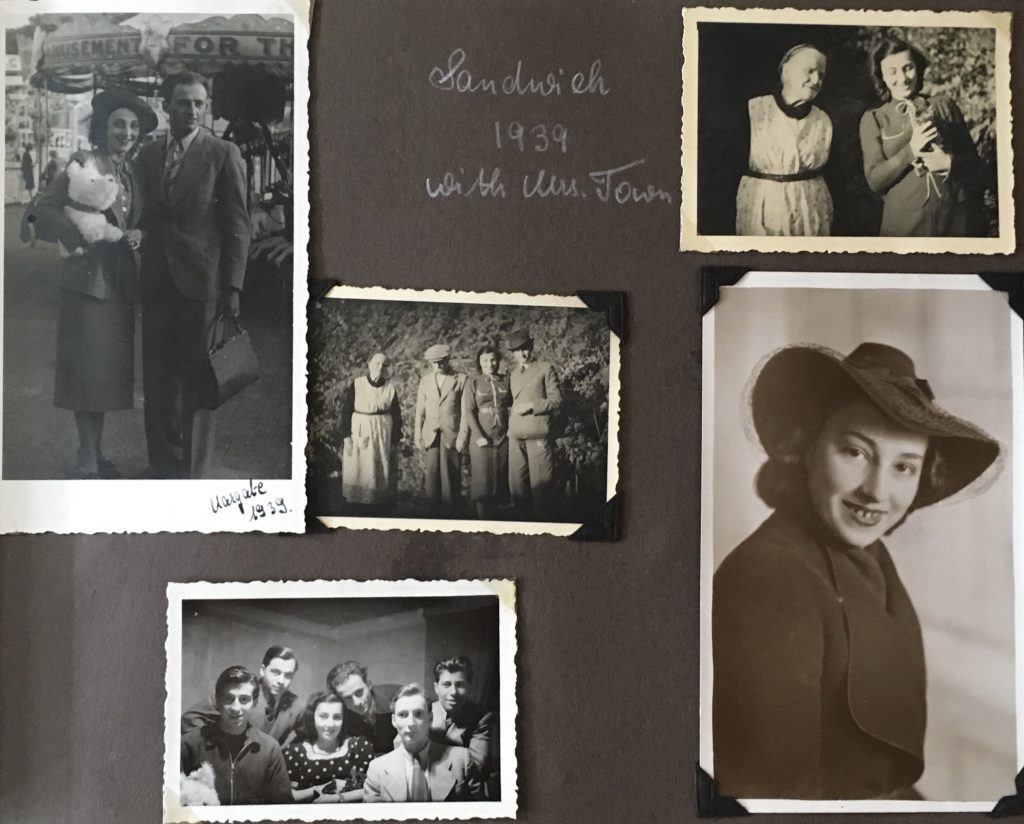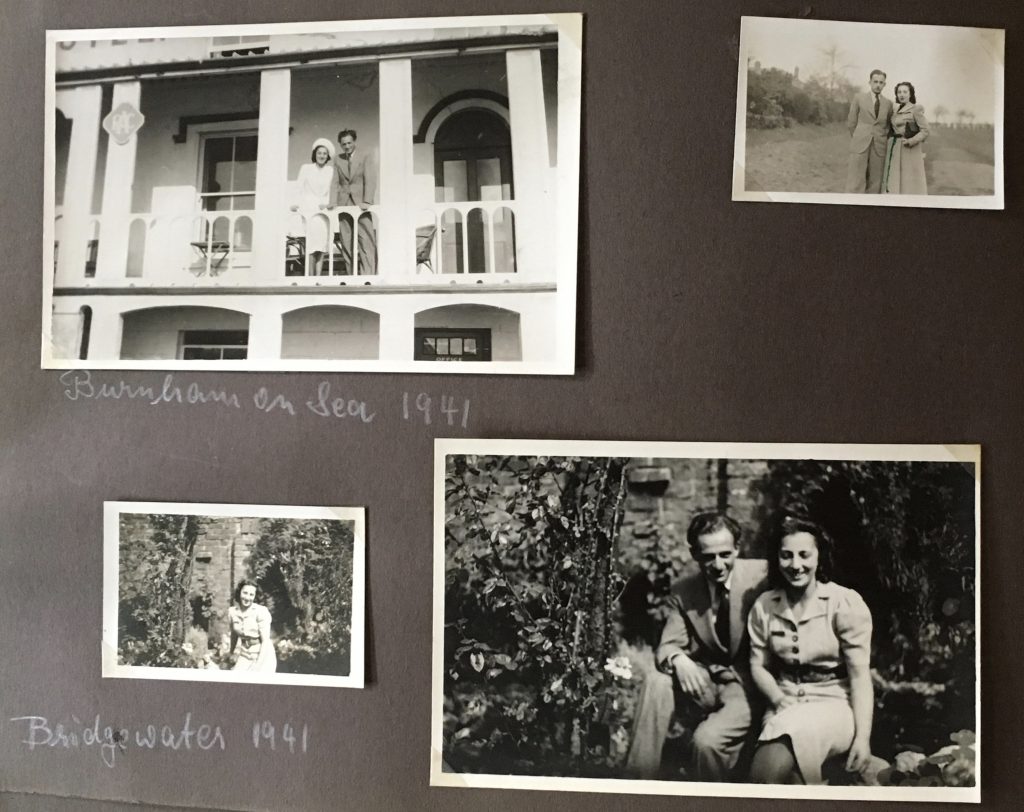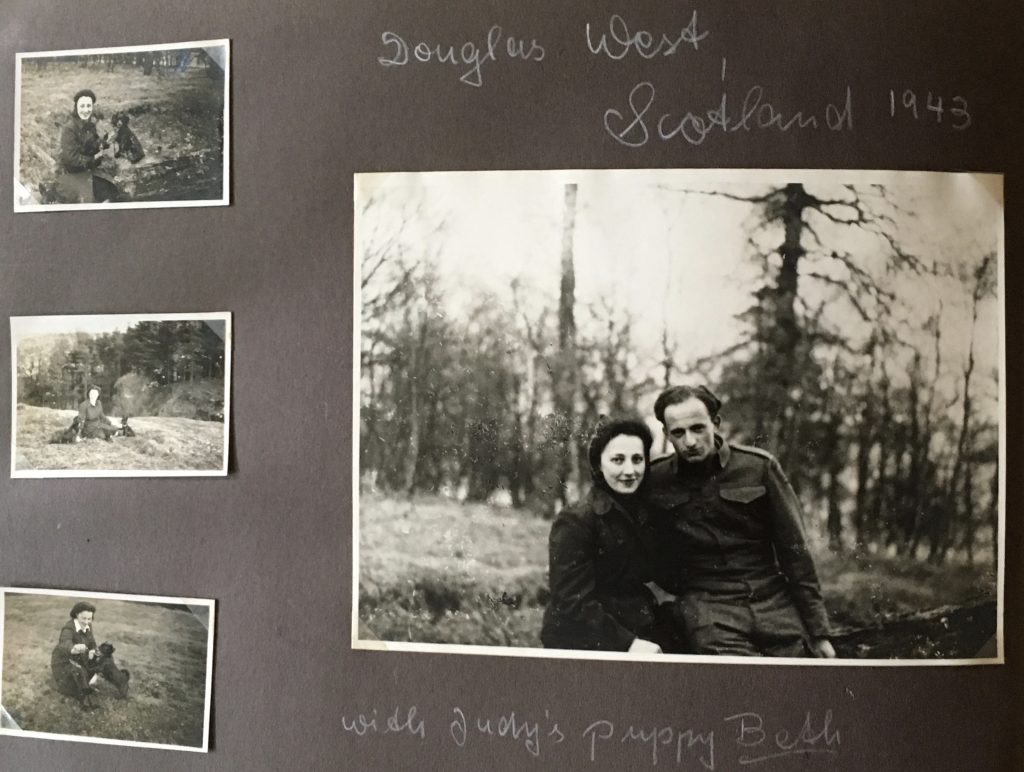Born: Zittau, Gorlitz, Germany, 21 October 1915
Profession in country of origin: Gardener
Arrived in Britain as a refugee from Germany on 27 April 1939
Documents
Male enemy alien - Exemption from internment - Refugee
Surname:Cohn
Forename: Victor Albert Georg
Alias: -
Date and place of birth: 21/10/1915 in Gorlitz
Nationality: German
Police Regn. Cert. No.: 710 996
Home Office ref: C 348
Address: Kitchener camp, Richborough, Sandwich, Kent
Normal occupation: Gardener
Present occupation: Farm work
Name and address of employer: -
Decision of tribunal: Exempted "C" & 9A
Date 09.10.1939
Whether exempted from Article 6(A): Yes
Whether desires to be repatriated: No
Tribunal District: Richborough Camp Tribunal 1
Source: National Archives, Home Office: Aliens Department: Internees Index, 1939-1947.
Editor’s note: We are not allowed to reproduce National Archives (UK) images, but we are permitted to reproduce the material from them, as shown above.
Documents submitted by Ann Rolett for her relative Victor Cohn.
Memories
Prior to his emigration Victor Cohn was a gardener living in Berlin, Germany. Family research indicates that he was in the Gut Winkel Jewish Training Center prior to his arrival at Kitchener on 27 April 1939.
Victor married Brigitte (Kitty) Cohn on 24 January 1939. She was only 17 but they married so that she could emigrate with him. Kitty was born 12 October 1921 in Prenzlau Germany and like Victor, was living in Berlin before her emigration. She was a dressmaker and arrived in Britain at the end of July 1939.
Interview with Kitty Cohn, wife of Victor Cohn
Excerpts from interview with Brigitte (Kitty) Cohn, wife of Kitchener resident Victor Cohn - 1994 Interviewed by Ann Rolett Ingrid Rolett (mother of Ann Rolett), who survived in hiding in Berlin, participated in the conversation
Kitty: Yes, Victor had two sisters. They could have come to England, but it wasn’t good enough for them to work as a maid.
Ann: He lost everyone, he had nobody who survived?
Kitty: Victor had nobody. Victor doesn’t have a soul in the world.
Kitty: I married in Berlin. You know, years ago parents were very strict. They wouldn’t even let you go over the bridge alone, let alone to another country. So, we married in January 1939 and Victor and my brothers applied for this camp, Kitchener camp, and Victor got an answer and my brothers didn’t.
Ann: They were taking Jews?
Kitty: Only Jews. It was from a Jewish organization in England who took in 4,000 men between the age of 20 or 18 and 40
Kitty: They built up this, there was a Lord Kitchener, and this was all bombed and whatnot so the Jewish HAIS organization took it over and the men worked there, repaired it and they built it up. But then the war broke out, and so it was either you were interned or you joined the Army, the British Army. So Victor joined the British Army, he was enlisted in the British Army and he came to Berlin.
Ingrid: He came to us. He found us.
Ann: (to Ingrid) Victor found you, right? He helped you, right?
Ingrid: Oh yeah, he helped as much as he could. Oh yeah. Oh, he always came and he brought us food.
Kitty: Yeah, he arranged so you could eat somewhere.
Ingrid: Yeah, He always brought a sack full of food.
Kitty: Uh huh. And I sent a lot of…. I lived in Scotland at that time, in Douglas.
Ingrid: Just the idea of somebody, some family.
Kitty: Ya, and I lived with Mr. _______ , and I sewed, I had one room there, and, but he had a grocery store, but everything was rationed, so anyhow, I told him that I have relatives in Germany and whatever I could send, coffee or cocoa or, I don’t know, whatever I could, whatever you can give me, but everything was rationed, so he really did me a favor.
Kitty: Victor was in the camp and my father said don’t write to him yet…. You see after Victor left I moved home again and I had already a permit to go to England and Victor would write that he went around and got a job for me and then I got the permit and my father said, don’t tell him this, don’t tell him this, stay another week, stay another week. Then I got a nasty letter from Victor that if I had no intention of coming then I shouldn’t fool around and anyhow, so then … because he heard that I had the permit through the loudspeaker. In the Kitchener camp there must be a loudspeaker and they announced who got the permit. Then it was that Victor heard that it was me. So then, anyhow, I did go.
Ingrid: Well, it must have been very hard for you. You were only 17 years old
Kitty: 17 years old, Very hard, very hard.
Kitty: There were bombings, it was awful, and with all the fires and the wrecks, it was awful and I was alone. Victor was in the army, but with Victor I had always, when he wrote letters, he wrote daily, he always wrote Kitty, but when he started a letter ‘Dear Brigette,’ then every paragraph, I took the first letter and this had a meaning. I always knew where he was. We had a code. When came a letter, dear Brigette, I know he was in Rennes (France) and so forth.
But then I didn’t get any letter for 4 weeks, and then I went to, I thought I had to get away from the London district, and I went to the station and I had my atlas, my map, I still have it, and I asked how much is it to Barnstable and how much is it to Bridgwater? Bridgwater was 10 dollars cheaper, so I took the cheaper one. I went, I didn’t know anybody, but by then I got already a soldiers pension from Victor.
Ingrid: So you had a little money.
Kitty: And you saved it at the post office. So, I went to Bridgwater. I went to the station and got the ticket and I had to change in London and with my bad English and my luggage, I don’t know, I missed my connection and instead of coming at Bridgwater at 4 o’clock, I must have come there at 6 o’clock, 7 o’clock. And you know, I slept the first night in the park. I had nowhere to go. I didn’t know the town. If you didn’t take a taxi, I didn’t have the money for the taxi. I had 7 shillings and I didn’t want to waste it. So I went near the station, there was a park and I stayed there.
And the next morning, I went and looked for a room and a woman took me in. In England, it was like this, if you had three bedrooms, you had to take three tenants.
Ann: why?
Ingrid: Because from the bombing, there was no housing.
Kitty: No housing, so _____, she took me in, and I remember that it was with food, but she never gave me any food, so I bought a can of herring and tomato sauce. I had no refrigerator in my room, so anyhow I put it near the window. and the next day I said, uch, even if she doesn’t cook anything, I have the herring in tomato sauce, and then the cat ate it all. (laughs)
Ingrid: I knew it!
Kitty: I could have cried. And then I got a job and it was in a household. And I said, it doesn’t pay for me to take an extra room, and if I go in a household, I have my room and board and get a little pocket money.
Ann: So what did you do, cleaning and babysitting kind of thing?
Kitty: Cleaning, and I remember this woman … and she took in, she had three or four boarders, and our main meal was at dinner time, I had to do the beds, I had to do the rooms, and every day, on Monday you did the washing, Tuesday you did the ironing, Wednesday you did the upstairs, Thursday you did…
Ingrid: You were a maid.
Kitty: A maid. Finally, I could take a day. But, there was an old couple there, and he always asked me on my day off to bring him a bottle of whiskey or something, so I always did and he always gave me a tip, a nice tip. And she wanted at 4 o’clock, her ovaltine, so we had a grandfather clock and the clock said 1, 2, 3, 4, I went up and I brought her the ovaltine, and she always tipped me every day. You know, this is what you remember.
And then she took in three men, they were nice, but they were working, and I had another pots and pans in the evening, and she didn’t offer me a dollar more, a shilling more and I did not like it. You know, I said I have another pots and pans in the evening, that’s double work, so I didn’t say anything, but I looked for another job and I found a job in a small house, it was very nice. And, when I gave my notice, she was surprised and I said, you know, I have more work and it is too much for me. I have a better job, more money and less work, and then I left. And, I stayed with that other couple for a little while.
Ann: So then when did you hear from Victor?
Kitty: Then, my old landlady, where is she? Here (finds picture, points her out in photo book) I gave her my address, this was my landlady and this was he and, you know, she couldn’t read or write, and he read the paper to us every night, and he couldn’t pronounce the names of the people and he always said Mr. So and So and Mrs. So and So and Mr. So and So, and I thought they all have the same names, they must be relatives. I didn’t know he read… and I took one room there.
Ann: This is in Dover.
Kitty: In Sandwich.
Ann: This is where you first came?
Kitty: Yah, this was close to the Kitchener camp, and this is Mr Town and she, and I left my address with her because Victor was right there, and then one day I had a letter from him, your husband arrived in England from France. And meanwhile I was in Bridgewater. And then Victor came and I said I would like a week off, or three days, whatever, then … but, I didn’t want to stay in Bridgewater. We went to the next town, I guess we went by bus, I don’t know. So, Victor was in a British uniform and our accent was very bad, and you know it was during the war and Christmas and the fighting, and anyhow, there were rooms for rent, in England you always had a sign on the window that said bed and breakfast, so we knocked at the door and said we would like a room, she said yes, she lets us in and shows us the room, and she locks the door from the outside. Victor was mad and I said, wait, wait, somebody will come and five minutes later, 10 minutes later, she comes with the police. But of course, Victor had the papers and so forth. And then afterwards, she said when we showed that were properly here, that she thought she had caught two spies. And, so she said you can have the room. I said I wouldn’t take this room for nothing. I would rather… and the policeman took us home to his home to stay overnight.
Kitty: Victor came back after Berlin to England, and then Gerda [Klar, Ingrid’s mother] wrote, so we tried to get you to England, but you know we had no money. You needed money to go to London to file the papers also. You know, it is very hard, when you have no money it is a different story.
Ingrid: Well, England couldn’t have been that good anyhow. They had a lot of bombing there too.
Kitty: They had a lot of bombing during the war.
But anyhow, meanwhile your mother was already in America and she wrote us, and they loved Victor, that the family is so small, we should come to America. We would get you a visa. So we said yes. Meanwhile, all our friends went to America, so we said yes, never even thinking.
Ingrid: I didn’t know that.
Kitty: Never even thinking that somebody would sponsor us, give us an affidavit… And then, your mother got in touch with Paula and she did give us the affidavit.
Interview transcript submitted by Ann Rolett for her relative Victor Cohn

Submitted by Ann Rolett for her relative Victor Cohn
Source: CBF files, via World Jewish Relief
Female enemy alien - Exemption from internment - Refugee Surname: Cohn Forename: Brigitte Alias: - Date and place of birth: 12/10/1921 in Prenzlau Nationality: German Police Regn. Cert. No.: 713 129 Home Office ref: - Address: 5, Bowling Street, Sandwich Normal occupation: Dressmaker Present occupation: Domestic Name and address of employer: Mrs Richards, as above Decision of tribunal: Exempt Date 24.10.1939 Whether exempted from Article 6(A): Yes Whether desires to be repatriated: No Tribunal District: Tribunal for Margate District
Source: National Archives, Home Office: Aliens Department: Internees Index, 1939-1947.
Editor’s note: We are not allowed to reproduce National Archives (UK) images, but we are permitted to reproduce the material from them, as shown above.
Photographs
Photographs submitted by Ann Rolett for her relative Victor Cohn.

